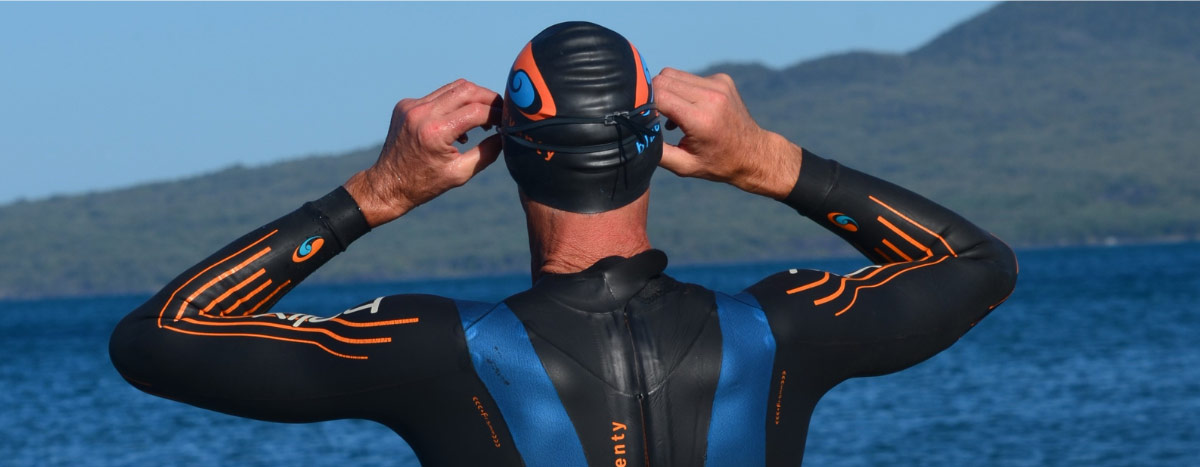Life Insurance
Lump sum payment if you were to pass away or are diagnosed with a terminal illness.
Ian Jones - 5 min read
14 April 2021
AIA Vitality Ambassador Ian Jones just completed the 100km Great Barrier Challenge. Here, he shares some advice for anyone looking to tackle an epic challenge of their own.

When you’re looking at a big event like an Ironman, a 10km run or something like the Great Barrier Challenge – which I recently completed with a fabulous team – it can feel pretty overwhelming.
It’s important to be realistic about the challenges you sign up for, and understand the work that’s required to get there. You can’t just wake up one day and say “I’m going to run a marathon!”
But with training, and by breaking it down into small steps and manageable chunks, you can run a marathon. I was realistic about the Great Barrier Challenge – and when the day arrived I knew I’d trained enough, and had the confidence, mental strength and resilience to take it on.
Resilience means you can stand up in front of a crowd, even though public speaking terrifies you. It helps you run one kilometre further than you thought you could. Resilience opens up opportunities that might be outside your comfort zone and encourages you to keep going.
We’re not all born with the same levels of resilience, but – to me – resilience is something that can be learned. It involves hard work, and you really have to earn it, but by setting yourself achievable goals, persevering through tough times and trying new things, you can foster this important life skill.
We all get anxious, thinking that we can’t do things – even top athletes. It’s why my immediate reaction to any opportunity is always yes. Then I work out the details, and if it’s going to be physically or logistically difficult and won’t be possible, I move on – but I know I’ve explored the opportunity. If my first thought about the Great Barrier Challenge was that it would be too daunting, I never would have made it to the start line – so I’m extremely glad I said yes to it.
It’s important to remove the word ‘quitting’ from your vocabulary. Don’t even give it a voice. Once the option to stop enters your mind, it’s so easy to give in. But if the word isn’t in your head, it’s not there telling you to quit.
When presented with an opportunity, I always think, “What’s the worst that can happen?” If the worst thing isn’t that bad, what have you got to lose?
The best way to stay accountable is to tell as many people as you can about the event you’re signing up for, or the goal you’re setting out to achieve – whether that’s running a marathon, learning an instrument, or quitting smoking. When you’ve got the support of family and friends, it gives you the strength to keep going. When we’re accountable, we can do staggeringly good things; and exceeding our own expectations often helps foster resilience.
It seems simple, but I never look at a big event or life challenge as a whole; instead, I try to break it down into smaller steps – half an hour, 45 minutes, an hour. It’s much easier to digest and makes the event much more achievable when you divide it into little milestones along the way.
When you’re part of a team, you don’t want to let anyone down. The Great Barrier Challenge team all had the same mission: finish, no matter what. The first 10 hours of the relay were quite challenging due to the weather conditions, and we were all quite apprehensive going into the night swim.
But then the wind dropped, the sea calmed, and the phosphorescence in the water lit up, like a light show. A family of orca, a school of hammerhead sharks, and a huge pod of dolphins joined us – it made for a truly magical experience. I wouldn’t have seen that if I’d said no to the opportunity.
Disclaimer: The information in this article is general information only and is not intended as financial, medical, health, nutritional, tax or other advice. It does not take into account any individual’s personal situation or needs. You should consider obtaining professional advice from a financial adviser and/or tax specialist, or medical or health practitioner, in relation to your own circumstances and before acting on this information.